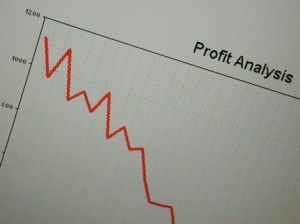If you are an entrepreneur you are in sales
Entrepreneurs are frequently great salespeople
It is rare to meet an entrepreneur who thinks they are a great salesperson or sales manager. Most times they will use language like “I just don’t have the gift of the gab” or ‘I know my products but…”. But usually at start up the entrepreneur has to be a salesperson – there is nobody else around!
It is also rare for entrepreneurs to take steps to develop selling or sales management skills, which is odd. They will frequently take financial courses, read marketing ‘how-to’ books and study HR and staff management. The business is totally dependent on sales being made, and yet it is the one art that entrepreneurs seem to shy away from.
Let’s back up a bit. At the time the business launches, the entrepreneur talks to prospective customers, defends the price, negotiates terms, enthuses about the qualities of the products or services and spends lots of effort to think of ways he can make initial sales. Contrary to the usually-expressed belief by entrepreneurs that they cannot sell, they are often really good salespeople. They work really hard and are determined to make sales because they have to. Their product knowledge is awesome; they have the ability to shave a price and the knowledge of when cutting further will hurt the business. They make very sure that what was promised gets delivered, and attend to any customer complaint with vigour and immediacy. Continue reading
Cutting prices
This article was written by Ed Hatton and appeared in the October November edition of Destiny Man magazine
The economy is uncertain, business is slow and your competitors have slashed prices. Should you follow suit?
The simple answer is yes if that increases profit or improves cash flow through more sales. Also yes as a defensive move to retain irreplaceable market share and that retention is worth sacrificing profit for. Be careful of emotions here. Clinging to things that should go can kill your business.
No if your products are price inelastic, so a price reduction does not materially increase sales. Also no if it would be more profitable to reposition and increase prices and value to your customers, and take higher margins for lower sales. Continue reading
Does your advertising generate sales?
Your sales force has a major impact on the success of your advertising
Every business spends time and money on marketing promotions and advertising, even if it is only signage or business cards. The objective is to make customers and potential customers aware of your company and its products and services. Most advertising also has the objective of inviting prospective buyers to approach
your company and either enquire or buy items. When the advertising succeeds and a customer engages with one of your salespeople, you should get value for your money spent on advertising by making a sale – but it does not always work out that way.
Prospective customers may not buy if the salespeople ignore them, if the product is not in stock, or not at the price advertised. Sometimes making the sale will depend on the salespersons product knowledge or their ability to really to a customer’s requirements. Are they able to match specific products to address customer needs or are they restricted to reciting (or reading) specifications and prices?
A lost sale
Some time ago I looked for a new device to heat a room in my home. There were many types of heaters and airconditioners to choose from. I had seen an advert for a type of heater that seemed to satisfy my needs and I had been attracted to the special price, so I visited the store. There was a display of the heaters on promotion near the entrance to the appliance store, with several neatly uniformed salespeople poised. Continue reading
Searching for salespeople
A large organisation with a substantial sales force will inevitably
have some stars, some losers and some ordinary middle of the road salespeople
in their sales team. Hopefully the stars make up for the poor performers and the
overall target is achieved. A small or medium business with one, or at best a
few salespeople does not have the same advantage – sales winners are scarce and
frequently poached, sales losers and very ordinary salespeople are much more
common, so the small business are less likely to meet targets.
Finding and keeping the right salespeople has always been a
challenge, and is even more difficult when the economic conditions reduce
business opportunities. In boom times even mediocre salespeople will appear to
be much better, but when business is tight good salespeople are needed – but
where to find such diamonds? And having found them how do you keep them
motivated and loyal?
Most small businesses start with the entrepreneur being the
salesperson – as he or she is also the production chief, financial manager and
everything else. Although they will often say they are useless at selling the
opposite is often the case – business owners are often very good at selling.
They have drive, passion, very deep product knowledge, commitment to delivery,
the ability to address customer needs, good negotiation skills, determination
to make sales and a high work ethic. This is a great list of attributes for an
ideal salesperson. By comparison the qualities of smooth talk, slick closing
techniques, good presentation skills and all the other skills popularly called
‘the gift of the gab’ are insignificant. But at some stage the demands of
running the business prohibit the entrepreneur from getting to see customers as
often as before. The business then decides to find a salesperson or two – and that proves more difficult than expected. Continue reading
Advice for the lifestyle entrepreneur
This article was written by Ed Hatton for
the column the Start up Coach and published by the South African edition of
Entrepreneur magazine in February 2011 and is posted here by their kind
permission.
Growing a business in a niche market
needs a strong understanding of your clients.
Challenge
A young entrepreneur has developed a personal PA service. Her company handles the
personal, social and home management aspects of her clients’ lives. She wants
to market her service to entrepreneurs, as she believes this is her ideal
target market: people who do not have time to take care of daily non-business
related chores themselves. However she is not sure how to cost-effectively
market her service to such a niche client base.
Solution
This entrepreneur has devised a service to support busy and successful people who do
not have the time to manage homes, social activities, gifts, pets, bills,
licenses and the many other activities that are a part of modern lifestyles.
She has identified her target market as successful entrepreneurs who do not have
support systems in place. As a typical start-up the company needs steady income
from contracted clients. Like many entrepreneurs she had developed a website,
and placed a couple of adverts in a lifestyle related magazine, but has had no
enquiries.
I wonder how often I have heard the phrase ‘and we didn’t even get ONE lead from that…’ Remember this: A single advert or
sign that describes your business is highly unlikely to bring sales leads.
Advertising is great at generating enquiries from prospective clients, but only
as a part of a campaign. Start-ups with limited marketing budgets usually need
to find alternate ways of finding prospects. Continue reading
Sell more to your customers
Working smarter to plan increased turnover without needing new business
Most businesses would like to increase their turnover, but often struggle to do so. One reason is businesses simply set a growth target with no focus on where that growth should come from, or why people would buy more from the company. Increasing turnover means more sales to existing customers, more new customers or higher prices, and for now I will focus on growing existing customers.
Selling more by being a great supplier
Before you even start to think about selling more to customers you have to examine if you really understand your customer’s goals, plans, needs and likes, and if the communication channels are open at the right levels. If you are dealing only with a junior buyer who gripes continually about your quality, prices and service don’t expect any of the stuff below to work. Start again and build a relationship of understanding their culture, needs and systems. Then deliver what meets those requirements. Get the communication channels working effectively at the right levels and address their concerns promptly. Then you can think about growing your business with them.
New Year resolutions for your sales force
This article was written by Ed Hatton and first appeared in January 2011 Shop sa, the official magazine of the Stationery, Home and office products Association. The Association is fortunate to have a journal of this quality serving its members; it is a great and informative read. 
Developing the sales team to gain a major competitive advantage
When you evaluate your business, listing your competitive advantages, or the even more specific Unique Selling Propositions (USPs), are they all price, product or service related? Are they sustainable?
About now some readers of this article may be thinking “Oops, I know I should look at that one day…” or “In my business everyone is the same, price on the day is the only difference…” If either of these thoughts reflects your position I suggest you stop reading and examine why your customers buy from you. If you really are a me-too business with no differentiation in the eyes of your customers, and yet you are still making sales, you are taking huge risks. If you don’t know why customers buy from you, then a change of circumstances outside your control, and perhaps even outside your awareness could have catastrophic consequences for your business.
Most competitive advantage positions relate to a product or a particular type of service. FedEx’s famous “When it absolutely positively has to be there overnight” or Debonairs “If it’s cold you don’t pay” are examples or service differentiators and Pastel’s “Nine out of ten Accountants recommend Pastel” or Audi’s “Vorsprung durch Tecknik” suggests product excellence. Price is often used – “Lowest price or we will refund the difference” is the essence of many price based differentiators. Commentators have used these slogans to show examples of USPs, and if your company can find a real and sustainable USP or two it will be in an exceptionally powerful position. Many companies have to settle for a more limited competitive advantage – being noticeably better than the competition even if that advantage is not unique.
How about developing the sales force to deliver a competitive advantage?
A team so professional, so knowledgeable and so able to solve customer needs that customers choose this company primarily to secure the services of the sales team. Services can be copied, product advantage is usually fleeting and the lowest price is the hardest of all to sustain, but the best sales force in a sector is a USP in the true sense of the word. What needs to be done to get to that position? Continue reading
Fighting the lowest price
This is the first of a series of sales and marketing tips drawn from my long experience of trying different things. Some could call these street fighting ideas…
Say you operate in a market with many small competitors. Price will become a major decision factor and price competition will be fierce. Some competitors will pitch their prices at levels where they cannot give the service they promise, but they will establish a low price perception in the minds of customers.
People in courier services, stationers, web site development car repairs and a host of other business types will have experienced this problem.
Your company wants to be there for the long haul and give good customer service, but you cannot compete with the prices offered by those who promise the world and don’t deliver, or those new entrants who are still to discover how costly customer service is. How do you compete? Continue reading
The Brand New Ending
If you, as entrepreneurs often do, are musing about how you can improve your business right now by doing something different and creative you might want to think about an interesting saying that I came across a while ago.
“No one can go back and make a brand new start. Anyone can start from now and make a brand new ending”. I have never managed to find the author (and if you know please tell me) but I salute the thinking.
If you wanted to apply this thought to your business you could imagine you were about to launch your business tomorrow or next week and re-experience the terror and excitement of a new venture.
If you were truly able to put yourself in this mode you would walk on water to satisfy a potential customer requirement, you would speculate about what they were thinking endlessly and try to anticipate their needs. Continue reading
ABS for business safely
 In motoring terms ABS is the technology that stops wheels from locking under hard braking, which means that they do not lose grip and the car will not simply slide into an obstruction. The device has saved many lives and countless costs of repairs. It is a vital safety factor and no modern car should be without ABS.
In motoring terms ABS is the technology that stops wheels from locking under hard braking, which means that they do not lose grip and the car will not simply slide into an obstruction. The device has saved many lives and countless costs of repairs. It is a vital safety factor and no modern car should be without ABS.
In entrepreneurial business there is another, equally vital ABS:
Always Be Selling
As businesses develop the entrepreneur can slide into bad habits, where he sees more of his suppliers than his customers, where he spends more time on the accounts and records than on making his products more desirable to his markets. Although it is not as physically dangerous as being in a car sliding helplessly towards a stationary truck, it can be even more expensive in lost business opportunities or customer dissatisfaction. Continue reading
Competing like a Champion

Image courtesy of Times Live an Avusa Inc. website
There was an inspiring story in the “It’s My Business” entrepreneurial supplement to the Sunday Times of 2nd May 2010. It described the business journey of Michael Rademeyer an entrepreneur in the clothing industry. The full article can be viewed online at the Times Live website. I have quoted from the article and acknowledge the fine work of It’s My Business and journalist Hendri Pelser on bring this incredible story to the public.
Back in 2006 the company he worked for closed down, as have hundreds in this troubled industry in the last decade. He joined another company who ‘had an unorthodox view on salaries – he didn’t get paid’. So, in an industry which has been battered by imports coming in at prices that local manufacturers can’t match, he did the intelligent thing and opened a clothing manufacturing company making jackets. Continue reading
Treading warily among the green shoots of economic recovery

pic courtesy of imageafter.com
The recession is technically over, with much debate among economists about a U, V or W shaped return to good times. The phrase ‘green shoots of recovery’ became an accepted part of business conversation six months ago, but many still feel the pain of the effect of the recession.
Should the entrepreneur now assume that the bad times are now just a fading unpleasant memory and that it is good strategy to go back to business as usual? Or do those ‘green shoots’ disguise sharp spikes waiting for an unwary entrepreneur to tread on them? Continue reading
Taking baby steps – a strategy to overcome disaster

pic courtesy of imageafter.com
Here is a familiar story. A good and profitable business sees a potential threat become reality and turnover falls suddenly. The former comfortable profit becomes a monthly loss.
The first imperative is to stop losing money which means that there must be more gross profit or lower expenses or both. Surprisingly tiny, almost insignificant changes will stop the company losing money. It’s the practice of taking baby steps instead of giant leaps.
For example: A business turns over of R1M per month before the crisis at a gross margin of 40% with operating expenses of R350K per month, leaving a net of R50K per month. To simplify the accounting this article will look at profit per month, as if this was a cash business and ignore tax. Say turnover shrinks by 20% after the disaster strikes, and the profit turns to a loss of R30K per month.
If, instead of making radical changes or retrenching staff, the company implements a careful strategy of tweaking several factors the loss can be eliminated without major change. Continue reading
How to panic sensibly – strategies for overcoming a business reversal

Pic courtesy of freeimages.co.uk
In most businesses there is always a risk of a sudden and serious reversal. A big customer stops buying, a supplier kills a product range, there is a strike in your sector, a major competitor appears, or any one of many potential threats occurs. Turnover slows and profits fall below breakeven and turn to losses.
Usually the business owner now exhibits some degree of panic. Common responses include the owner (male or female, the male gender is used only for convenience in this article) punishing himself by taking out less money, adding to his worries and possibly getting into personal debt. Then he delays paying creditors as long as possible and as a reward may have raw material or inventory deliveries being suspended because his account is not up to date. Often he holds off paying his VAT and incurs penalties. He may institute some special offers for new customers to regain the lost turnover, but this will affect his margins and alienate his regular customers who are paying a higher price. Continue reading
Starting a new business

pic courtesy of freeimages.co.uk
Starting a new business is an exhilarating and scary step across a line that non-entrepreneurs will never experience or understand. It’s a bit like going solo if you trained as a pilot. Suddenly there is nobody to back you up, nobody to rescue you, nobody to ask. It is the most incredible sense of achievement and excitement, and a bit frightening too. You can create in the corporate world but there is something special about creating a new enterprise that moves the sense of satisfaction into a different league.
The pointers below are there to help new entrepreneurs to reduce their risk and increase their profitability and enjoyment. And to avoid tripping over things that have felled others – I trust they will be valuable.
- • Be passionate. If you believe you supply goods and services that are really great, and you love what you do, you reduce your risk and improve your enjoyment.
• Don’t be a ‘me too’ business – If you are just another supplier doing the same as many others around then you are likely to struggle. Be different.
• You will get scared. You will worry you won’t make it, or be afraid you are not good enough. You will be tempted to give up. Get used to all this, it keeps you sharp.
Continue reading








